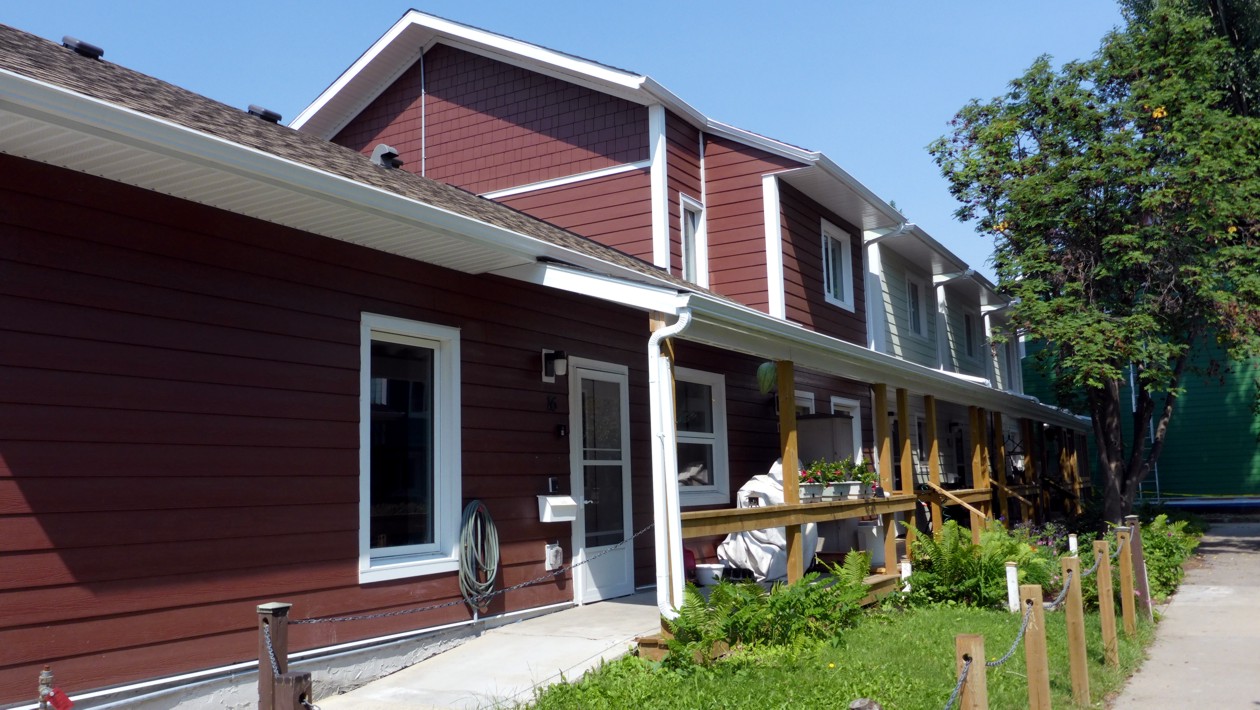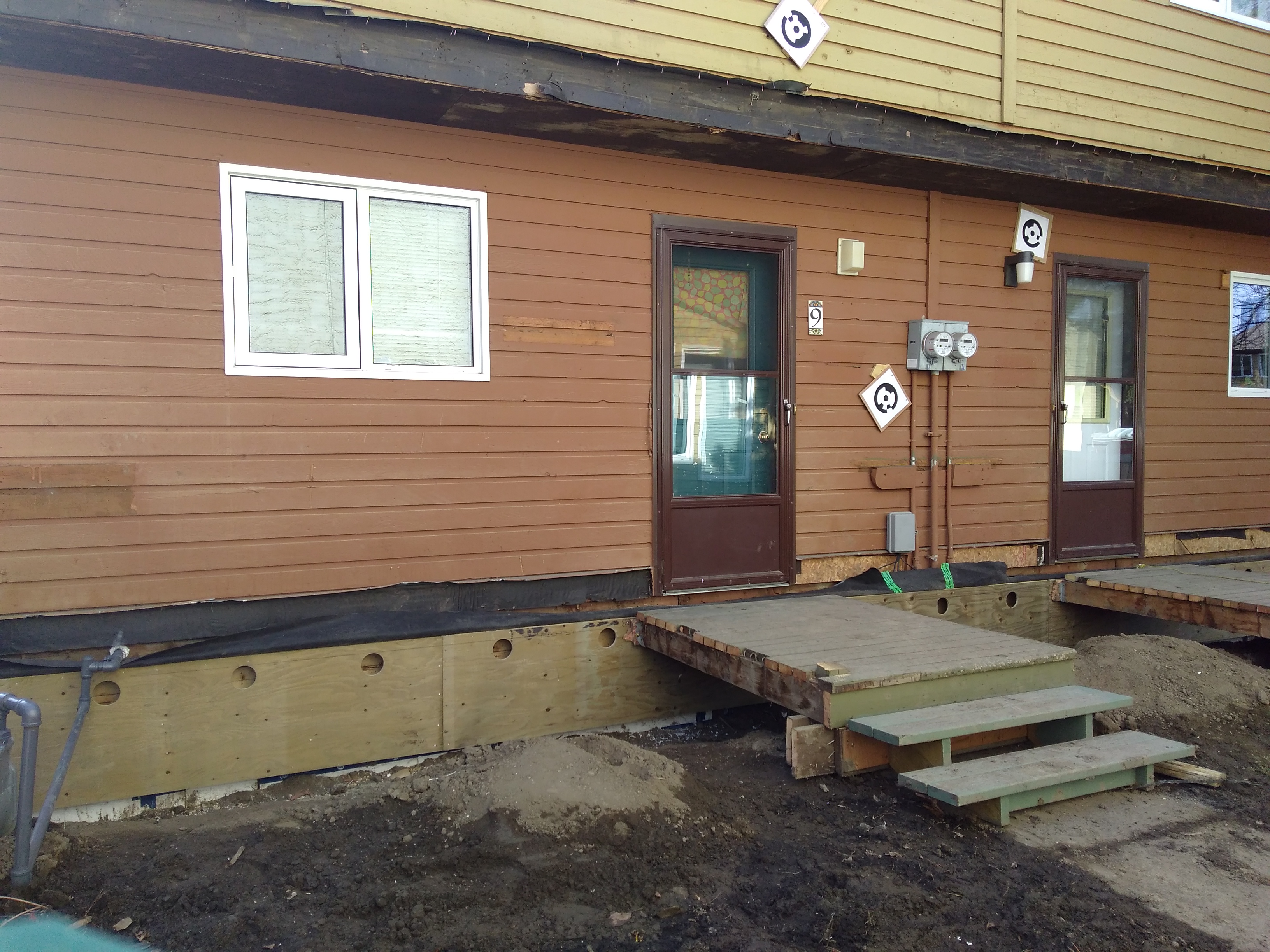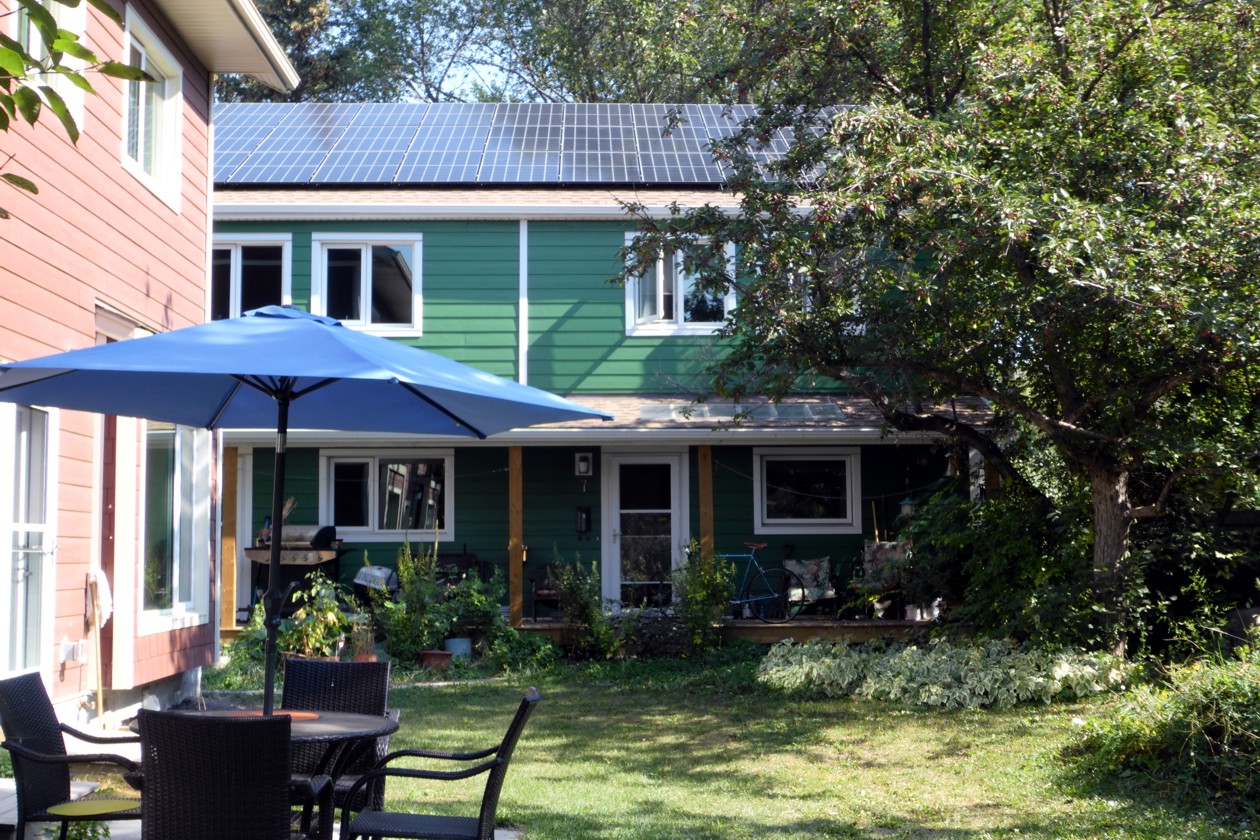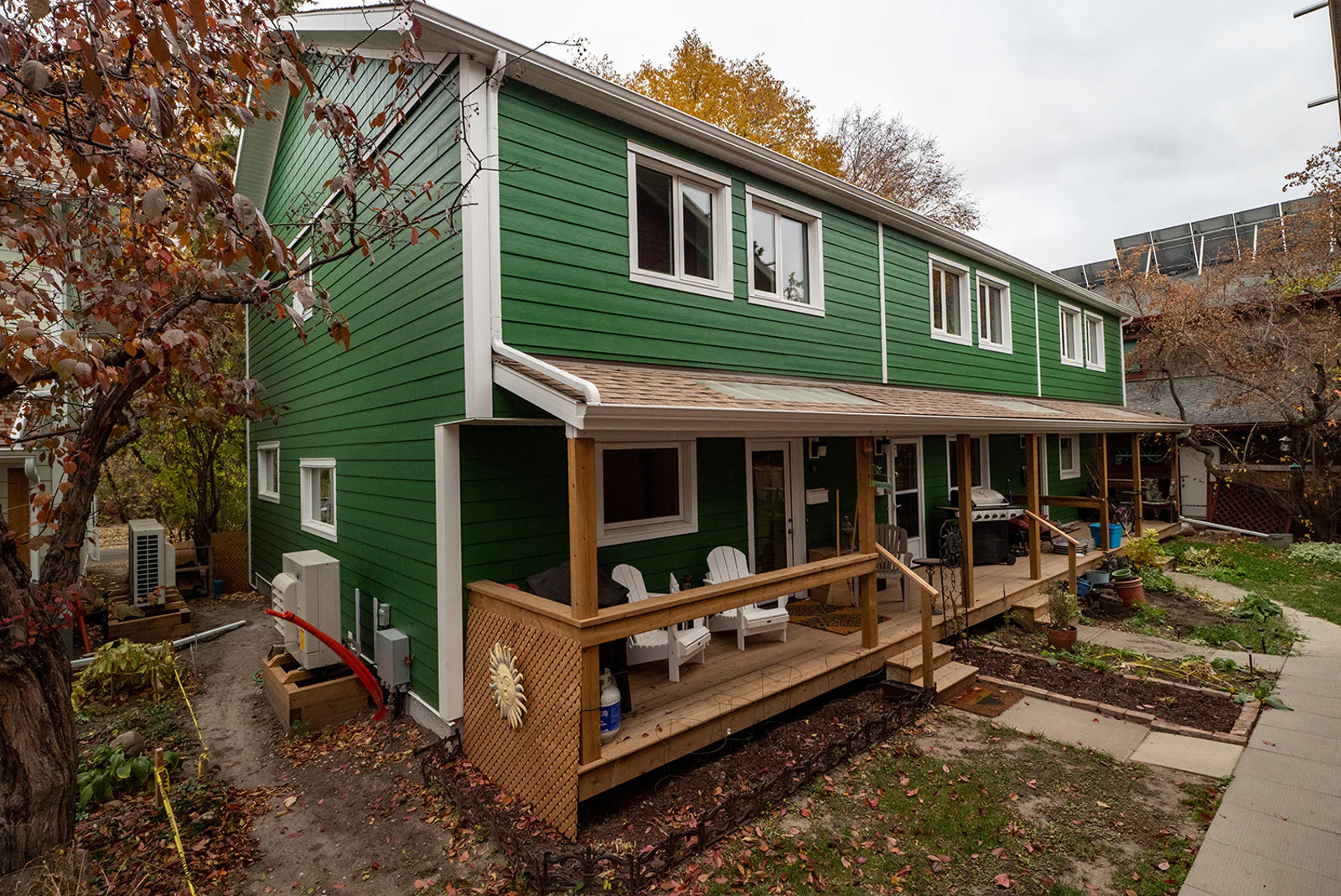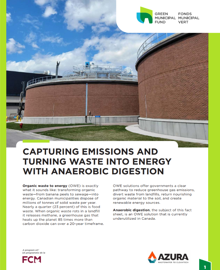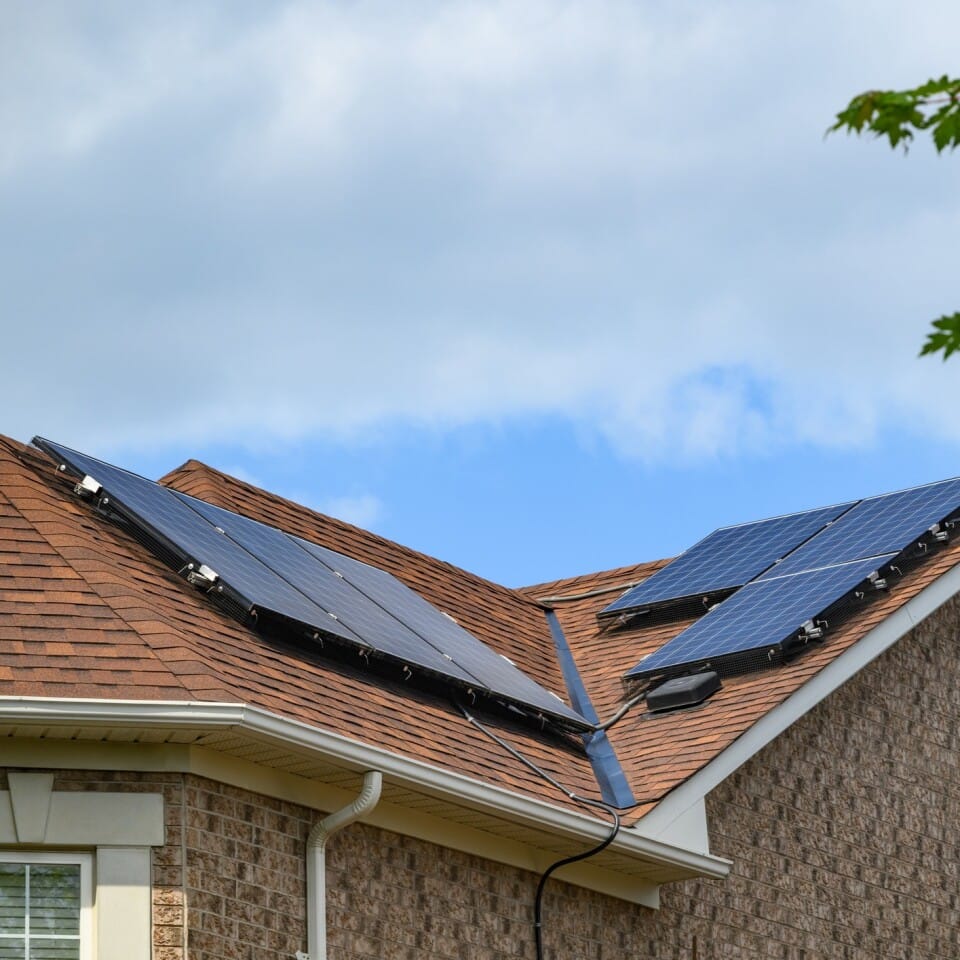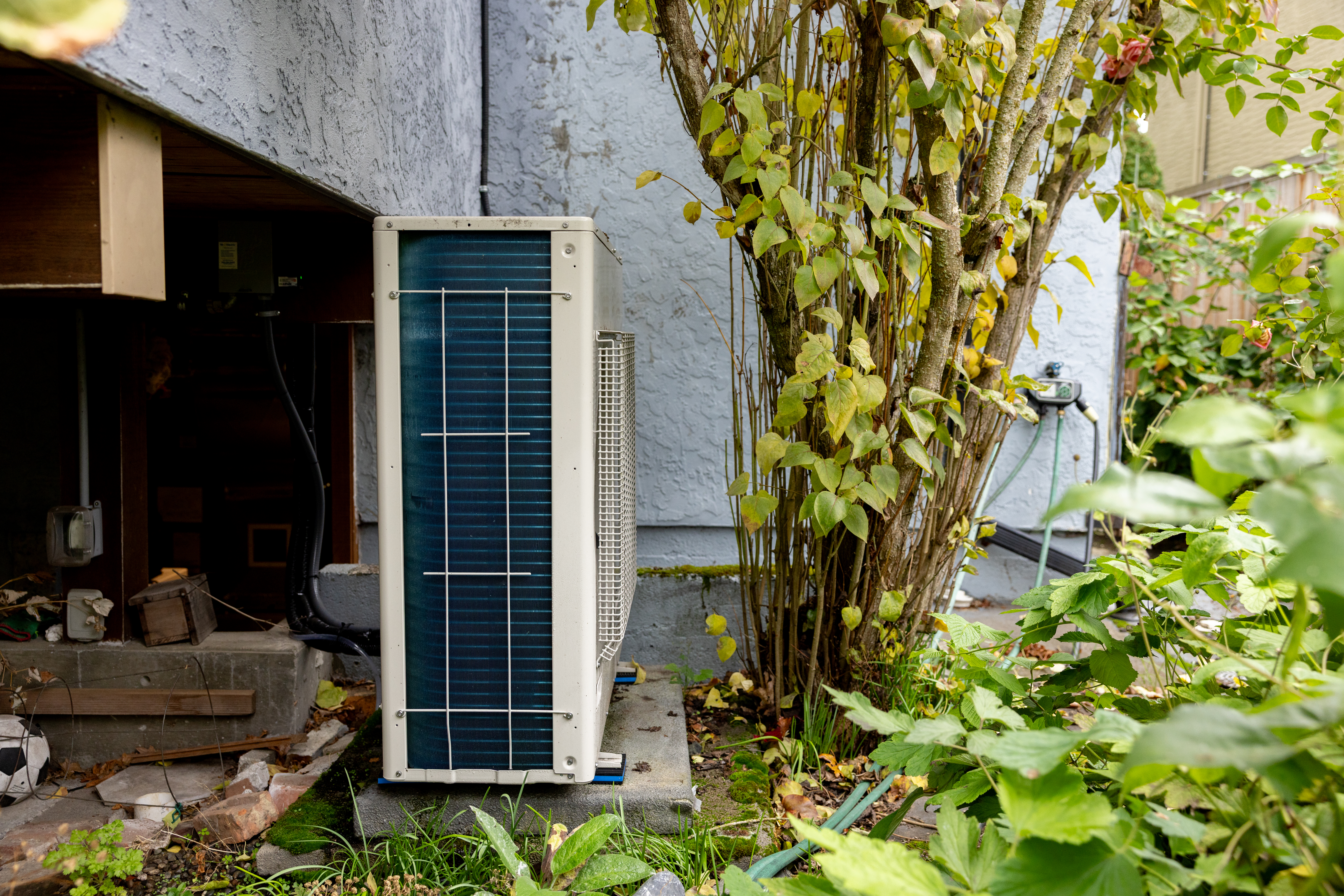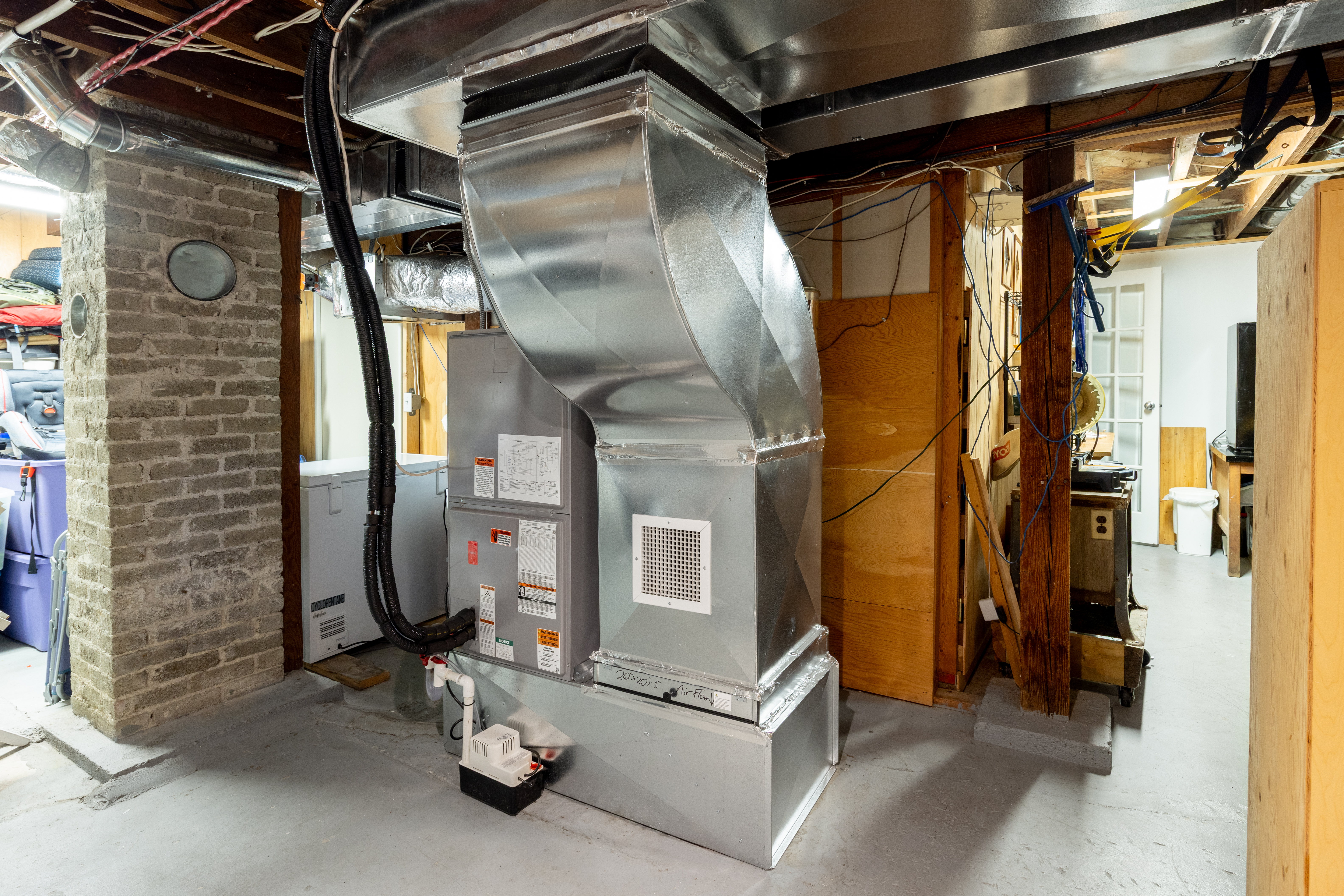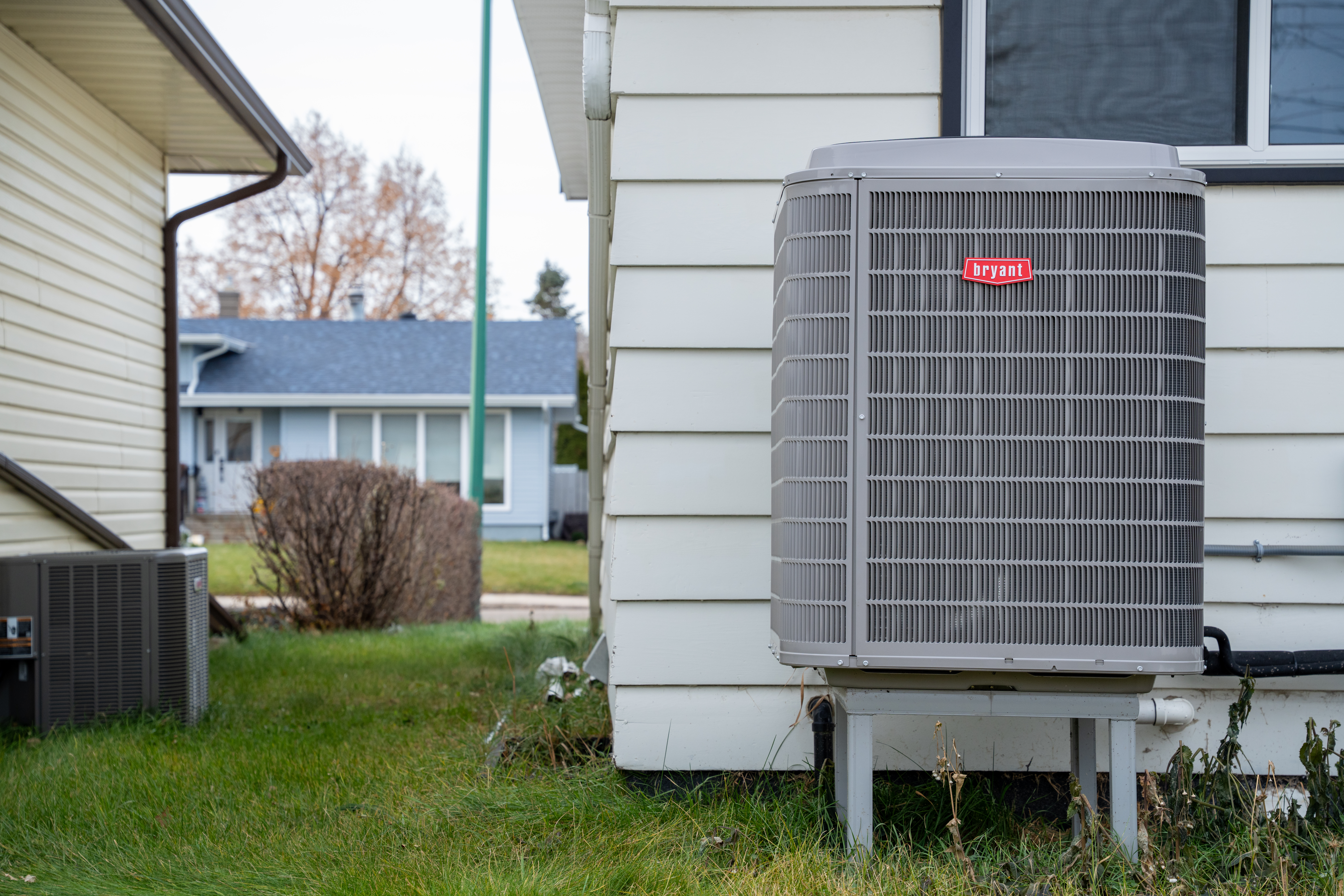Key points
- The largest panelized deep energy retrofit project undertaken in Canada
- 59 housing units upgraded
- Natural gas use completely eliminated
- 330 tonnes of greenhouse gas emissions eliminated annually
- Up to $100,000 potential annual savings in energy costs
Summary
Sundance Housing Co-operative in Edmonton has taken bold steps to modernize its original 59-unit townhouse complex built in the late 1970s. Through a member-led process, the co-op committed to a deep energy retrofit that combined prefabricated wall panels, improved insulation, new windows and doors and upgraded roofing and ventilation systems with full electrification and rooftop solar panels.
The result is a community that has completely eliminated natural gas use and reduced energy consumption by up to 84 percent, and hopes for as much as $100,000 in annual savings. Residents now live in quieter, more comfortable homes—warm in the winter and cool in the summer—while contributing to Canada’s climate goals. The project is also recognized as the largest panelized retrofit ever undertaken in the country.
Background
Sundance Housing Co-operative is a mixed-income community in Edmonton with 78 units, including a 59-townhouse complex that forms the original core of the co-op. When first built in the late 1970s, these townhomes were considered relatively energy efficient. But by the mid-2010s, Sundance had to deal with aging buildings requiring substantial upgrades in order to meet evolving standards, extend their lifespan and keep homes comfortable for residents.
In 2015, the Sundance Planning and Development Committee began exploring how to approach renovations. They wanted to avoid piecemeal repairs and instead take a comprehensive approach that would address structural needs while also contributing to climate action. The committee saw an opportunity for Sundance to become a leader in eliminating greenhouse gas emissions and to live up to its co-op values of affordability, sustainability and environmental responsibility.
A key source of inspiration was Energiesprong, a Dutch retrofit technique that uses pre-made wall panels, thick insulation and renewable energy systems to create ultra-efficient homes. Members were also keen to participate in Canada’s journey toward net zero by eliminating fossil fuel use and reducing their pull on the energy grid, thereby significantly lowering their carbon footprint.
“If people care about the future of the earth and their children, then there’s a path forward for them—you can make a difference.” —Sandy Susut, Sundance resident and planning and development committee member
The challenge
The challenge Sundance faced was clear: How could the co-op renovate its 59 original townhomes in a way that maximized efficiency, extended their life, improved comfort and aligned with member values—all while keeping housing affordable?
The buildings themselves presented hurdles. Features such as basements and roof overhangs made these retrofits more complex and costly than similar Energiesprong projects in the Netherlands. The co-op also had to find ways to manage financing without passing unmanageable costs on to residents.
The approach
In 2017, Sundance hired the Communitas Group and ReNu Engineering to conduct building assessments and explore renovation and financing options. This work unfolded in two critical steps:
- Member engagement: Co-op members were deeply involved in shaping the project. Together, they defined the values that would guide decision making: accessibility, affordability, co-op spirit, engagement, health and well-being, inclusiveness, pride of ownership, environmental sustainability and long-term viability.
- Building condition assessment, including energy modelling: Consultants presented three renovation options:
- Refurbishment: Minimal upgrades, postponing major work until windows required replacement.
- Retrofit to current code: Adding insulation, bringing homes up to modern building standards and replacing cladding, gutters and downspouts.
- Deep energy retrofit: Maximizing efficiency with new insulation, ventilation, windows, doors, exterior fixtures, cladding and roofing.
Each option was scored against the co-op’s values. The deep energy retrofit was the clear choice. Members also recognized the opportunity to go further: replacing natural gas furnaces with electric heat pumps and installing rooftop solar panels to eliminate fossil fuel use entirely.
The solutions and results
The project began with a pilot stage involving two homes, allowing the co-op to test how prefabricated wall panels would be installed and how they would perform. This pilot informed the larger retrofit of all 59 units.
Throughout the process, the Sundance Planning and Development Committee took the lead on research, paperwork and coordination with project managers and the design-build construction company—but major decisions were always made collectively by the membership.
Key upgrades included:
- All-new building envelope created by placing prefabricated panels over existing cladding on all exterior walls, with much more effective insulation blown in.
- New roofs with higher-value insulation built over existing roofs.
- Basements insulated from the outside down to the footings with high-density foam.
- Installation of more-efficient exterior doors and windows.
- Replacement of natural gas with electric air-source heat pumps and hot water tanks.
- Addition of modern air ventilation systems, as required for such airtight buildings.
- Bright-coloured Hardie Board cladding reminiscent of the Maritimes.
- Installation of rooftop solar panels, which went online in the summer of 2025.
Once these measures were in place, the impact was immediate and tangible: quiet, well-sealed homes requiring much less energy. When the solar panels went online, household energy bills dropped even more. Members noticed that their homes were noticeably more comfortable, especially during Edmonton’s hot summers, thanks to the improved insulation and added cooling capacity. The new windows and wall systems also made units quieter, creating calmer living spaces.
The benefits extend well beyond comfort.
With natural gas eliminated entirely, the community is now preventing an estimated 330 tonnes of greenhouse gas emissions every year. Rooftop solar provides 78 percent of the co-op’s energy needs, reducing reliance on external energy sources and insulating residents from price fluctuations.
Financially, the co-op hopes to save up to $100,000 annually thanks to a reduction in externally supplied energy use of up to 84 percent, strengthening affordability for members long into the future. They look forward to calculating actual figures after a full year of solar credits.
Perhaps just as importantly, the project has strengthened pride and connection within the community. The bright new facades have given the townhomes a fresh, distinctive look, while members see their collective decision to eliminate fossil fuels as proof that small communities can lead on climate solutions. By carrying out the largest retrofit in Canada completed using prefab panels, Sundance has also set a precedent that other co-ops and housing providers can follow.
Lessons learned
Undertaking such an ambitious retrofit was not without challenges. The unique design of Sundance’s buildings—including basements and roof overhangs—proved more complicated to work with than originally anticipated. These features affected both costs and timelines, reminding the co-op that even well-researched plans must adapt to the realities of construction.
One crucial step is finding the best resource providers who are committed to addressing the climate crisis. A big lesson is the importance of having experienced project management familiar with co-op housing and funding possibilities, as was provided to Sundance by the Communitas Group, as well as a skilled construction company such as Sundance partner Butterwick Projects.
Equally, the social side of a long-term construction project required careful attention. Living through years of construction tested members’ patience, but strategies including education workshops and regular retrofit newsletters helped keep people engaged, as did opportunities to customize elements such as door colours, to select exterior doors and screen doors and to decide whether to upgrade windows. These efforts gave residents a sense of ownership and control during a disruptive experience. Members were also able to participate in big decisions such as adding solar panels and selecting a green energy provider.
Another important lesson was the value of strong leadership. The project demanded countless hours of planning, research, administration, coordination and problem-solving. Having a dedicated and experienced planning and development committee made it possible to keep the retrofit moving forward, even during overwhelming periods. At times, the committee recognized the need to pause, regroup and avoid burnout—a reminder that long-term community projects require not just technical expertise, but also stamina and care for the people leading them. “Keep Calm and Carry On” was adopted by the committee as its motto.
“Housing co-ops are such an opportunity for people to work collaboratively to make a much bigger impact than any one individual could.” —Sandy Susut, Sundance resident and planning and development committee member
Next steps
With the construction phase complete, Sundance is now turning its attention to how the new systems will perform over time and how residents can get the most from them. Education is a key focus: Members are being supported to understand how to use heat pumps efficiently, monitor their own energy use and adjust habits to maximize savings.
To track performance, the co-op will evaluate the system annually for the next five years. This monitoring will ensure that the retrofits deliver the promised energy savings and emissions reductions.
A new digital dashboard has also been developed. The hope is that it will give the co-op real-time access to information on how much energy the solar panels are generating and how much the community is using.
These steps will help Sundance not only measure the success of its retrofit but also strengthen its culture of shared responsibility and learning. Just as members worked together to make decisions during planning and construction, they will now collaborate to ensure the community benefits fully from its investment in a fossil fuel-free future.
For more detailed information about this project, read the technical case study at retrofitcanada.com.
